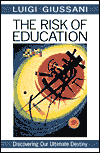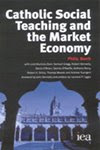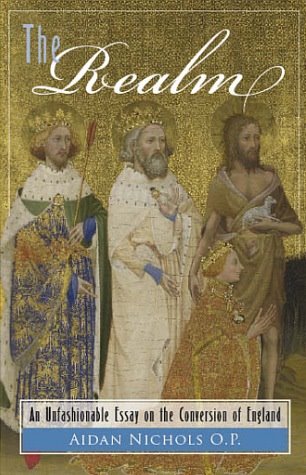
“Socrates was the
tertium quid, the third element sought for and seeking, in that Greek life which was already tottering to its very foundations. Upright, impartial, the mediator between the two hostile parties, he was for that very reason the object of the implacable hatred of both”. (
Soloviev, Plato’s life drama)
The modern world - and I mean the whole world, not just the handful of Caucasians clinging to the shores of the North Atlantic and its colonies – faces a crisis.
Turning and turning in the widening gyre
The falcon cannot hear the falconer
Things fall apart, the centre cannot hold
Mere anarchy is loosed upon the world
The blood-dimmed tide is loosed, and everywhere
The ceremony of innocence is drowned.
(Yeats, The Second Coming)
But God does not leave Himself without prophetic witnesses. There has always been a modernity of one sort or another, and the crisis we face has been faced in many ways and in many places. In Western history, the confrontation between Socrates and the modernity of his day was seminal.
Soloviev’s essay on Plato sets out the position and importance of Socrates with unusual clarity. When Socrates was born, Greek society was approaching a crisis of its own. Its traditional way of life was a unitary religious-political system that knew nothing of the separation of Church and State. Acceptance of the ancestral law required unquestioning belief in the ancestral gods who guaranteed it.
Such a system is fragile, and Soloviev thanks God that it is:
“A blind faith, based exclusively on facts, is unworthy of the dignity of man. It is more proper to the devils, who believe and tremble, or to dumb beasts, who, of course, accept the law of their being without reflection or regret, without thought, or vain and foolish doubts”.
A new class of intellectuals, the Sophists, subjected the traditional law to criticism, spurred by the growing knowledge of far-off lands where things were done differently. The democratisation of some of the Greek city-states also revealed the awful truth – law could change over time as well as over space.
“There arose a whole class of people possessing regularly developed powers of reflection, literary culture, and keen intellectual interests – people who had lost all faith in the shaken traditional bases of national life, and who at the same time lacked the moral power of devoting themselves to the true and better standards of life”.
Drawing on the principle of relativeness, the Sophists undermined the concept of philosophy itself, pointing out the inconsistency of the cosmological speculations of the early Greek philosophers. Not only the law, but all knowledge was held to be contingent and unreliable, and to seek the truth was held pointless. But it was open to everyone to pursue their desires and achieve their own practical ends, and rhetoric, not philosophy, was the means to those ends.
Socrates gave prophetic witness that a cultural renovation was possible - though not without great sacrifice – through the synthesis of these two great tendencies of his time. With the traditionalists, Socrates accepted the obligations imposed by the truth, reason and goodness that were part of the Greek tradition. With the Sophists, he believed in the need for critical investigation of this tradition. He reconciled these beliefs in his assertion that there exists an absolute obligation, but only to the things which hard thinking demonstrates are, in fact, absolute.
But this was a message that neither side wished to hear, because each saw that Socrates demanded a complete reorientation of their principles. The traditionalists saw that their traditions would be judged by this new ‘absolute’, and the Sophists saw that their relativism could not survive its glare. Caught between these two enmities, Socrates lost his life.
Today, we face a situation uncannily similar to the one that faced Socrates.
On one hand, the Islamic world sees men of violence who call on tradition to deny the role and universality of reason in the moral and religious life. They hold the lives of their co-religionists just as cheap as they hold ours; which is very cheap indeed.
“I have spoken of beasts and devils, not for the sake of stylistic embellishment, but to recall the historical truth that religions, founded only on a blind belief in facts, and rejecting other and better bases, have always ended either in a devilish lust for blood, or in a brute-like absence of shame”. (Soloviev)
At Regensburg, Benedict XVI offered this challenge to the Islamic world: “How do you tell what is mere culture and what is Truth? For surely, if you have no answer, you can only fall back on tradition; not a living tradition like Catholicism, that questions and renovates itself over and over, but a dead tradition that merely tries to return to a dead past”.
On the other, the West is threatened by a ‘hermeneutics of suspicion’ and a culture of degenerate scientism that combine to deny the very possibility of virtue. They reduce our moral and political life to nothing more than the pursuit of our own individual ends. All of this is based on a ‘rationalism’ so narrow that it denies the very existence of a shared reason that we can together apply to the great moral and political issues of the day.
At Regensburg, Benedict XVI offered this challenge to the West: “How do you defend your values and your way of life, when you have already abandoned the possibility of justifying them? For surely, if you have no absolute foundation for your values and way of life, you must accept that only power directs human affairs. And those that live by the sword will die by the sword.”
These tendencies have not won everywhere, but the forces of resistance are weakening as the cultural capital of the great moral traditions erodes. We read the papers, we watch the news, and the message is always the same: the bad guys are winning.
In our time, Benedict’s Regensburg speech, with uncanny echoes of the teaching of Socrates, demands a similar cultural renovation based on a similar synthesis of faith and reason. He offers a hard word to both the West and the Islamic world, one both sides can barely understand, so weak has their hold on truth become.
Yet the centre does hold. It may be the only thing that holds. And we have Christ's promise that this centre will not fail: "You are Peter, and on this rock I will build my Church, and the gates of hell shall not prevail against it". This promise the Orthodox Soloviev himself recognised, and he acknowledged the primacy of Peter.
And there are many others like him. The teaching authority of the Peter's successor is as real and hard as a rock. Slowly and strangely, even Christians who do not recognise or even respect this authority are, consciously or unconsciously, gathering under the shelter it affords.






 Audacity in the service of hypocrisy is rare; we prefer not to advertise ourselves as frauds. When it happens, it is usually because we are too blind or complacent to see the incoherence of our position. And so it was with last Sunday's Melbourne Age.
Audacity in the service of hypocrisy is rare; we prefer not to advertise ourselves as frauds. When it happens, it is usually because we are too blind or complacent to see the incoherence of our position. And so it was with last Sunday's Melbourne Age.



